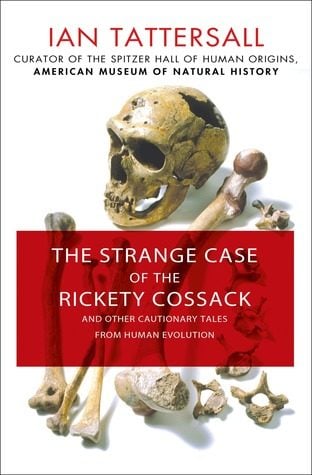Book Shelf | Today in History

by H. Gregory
When I was young and first learned about Charles Darwin and On the Origin of Species, I was immediately enamored with him and his story. Of course these early lessons were quite simplified. Pictures of historical people were often painted in broad strokes. In Darwin’s case, I learned that a grandfatherly scientist went to the Galapagos Islands, figured out how evolution works, and then published a famous book about it.
For most of us, the gaps in the story have been filled, yet I still find myself a big fan. His is a rather romantic story, and honestly I like it that way. This is one of those moments when the details of what really happened don’t get in the way of the message. The story of Darwin has certainly not gone way of Columbus.
Last week I decided to pick up his autobiography to get a sense of how Darwin thought about himself and the world in which he lived, and this book, compiled from Darwin’s journals and meant for his children, renewed a sense of nostalgia in me.
The book is short, and the language is modern enough to make it an easy read. As expected, this is no rags to riches story, no guy from the wrong side of the track makes it big. Darwin was privileged, and he understood that. In fact, at one point he admits that he had the ability to do what he did because he did not have to work. He describes a well educated, cultured man with the freedom to explore the world around him however he saw fit.
Yes, he was ill. I was somewhat surprised to read how often and how young he was when this began. And yes, he loved the natural sciences. He was obsessed! If it wasn’t beetles, it was geology or orchids. I was amused to realize that after the seminal On the Origin of Species and The Descent of Man, he wrote about none other than climbing plants. Like I said, he explored the world around him however he wanted.

Darwin had great reverence for the highly successful, older men with whom he was “intimately acquainted.” However, he also mentions he might have been superior to the “common run of youths” for being welcomed by such notable men. He knew he was special, and it seems he was told so often, except by his detractors of course.
What struck me most was that in the final pages, he reflects on his mind and how it had changed over the years. He worried about having lost the “higher aesthetic.” He no longer enjoyed music or poetry as he had when he was young, and he blamed himself for not having kept this part of his brain active. In his opinion, he had turned his mind into a machine that could grind “general laws out of large collections of facts.” However, he did not think of himself as ever having been that witty or especially brainy. In this self exploration it seems as if he had just realized he had done something amazing and was trying to figure out how the heck he had accomplished it! He probably didn’t realize how amazing it had actually been and how we’d be celebrating his birthday over a century later.
Reading more about Darwin makes me so happy to have gotten to work in the sciences, and I feel lucky to now work for The Leakey Foundation, which has its own sense of nostalgia. I am surrounded by scientists who have so many of these unique traits. They are passionate, inquisitive, and driven. They travel to far off places and return to share their ideas with others. It is hard to not see a little bit of Darwin in each and every one of them.
On behalf of The Leakey Foundation, I would like to wish you a happy day on Charles Darwin’s birthday.

